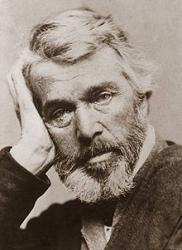Planning worship?
Check out our sister site, ZeteoSearch.org,
for 20+ additional resources related to your search.
- |
User Links
Search Results
For Little Things
Author: Margaret Clemens Appears in 1 hymnal First Line: For bunnies and squirrels Topics: Thanks for Special Things; God the Creator; Animals; Birds; Pets Used With Tune: HARDWICK
For Little Things
So here hath been dawning
Author: Thomas Carlyle, 1795-1881 Appears in 14 hymnals Used With Tune: HARDWICK
So here hath been dawning
For Little Things
Author: Margaret Clemens Hymnal: Sing for Joy #72 (1961) First Line: For bunnies and squirrels Topics: Thanks for Special Things; God the Creator; Animals; Birds; Pets Languages: English Tune Title: HARDWICK
For Little Things
So here hath been dawning
Author: Thomas Carlyle, 1795-1881 Hymnal: Songs of Praise #438 (1925) Languages: English Tune Title: HARDWICK
So here hath been dawning
So here hath been dawning
Author: Thomas Carlyle (1795-1881) Hymnal: The Hymnal #451 (1950) Meter: 6.5.6.5 irregular Lyrics: 1 So here hath been dawning
Another blue day:
Think, wilt thou let it
Slip useless away?
Out of eternity
This new day is born;
Into eternity,
At night, will return.
2 Behold it aforetime
No eye ever did:
So soon it forever
From all eyes is hid.
Here hath been dawning
Another blue day:
Think, wilt thou let it
Slip useless away?
Amen. Topics: Children's Hymns; Discipleship and Service; Introits; Orisons Tune Title: HARDWICK
So here hath been dawning
Thomas Carlyle

1795 - 1881 Person Name: Thomas Carlyle (1795-1881) Author of "So here hath been dawning" in The Hymnal Thomas Carlyle (4 December 1795 – 5 February 1881) was a Scottish satirical writer, essayist, historian and teacher during the Victorian era. He called economics "the dismal science", wrote articles for the Edinburgh Encyclopedia, and became a controversial social commentator.
Coming from a strict Calvinist family, Carlyle was expected to become a preacher by his parents, but while at the University of Edinburgh he lost his Christian faith. Calvinist values, however, remained with him throughout his life. His combination of a religious temperament with loss of faith in traditional Christianity, made Carlyle's work appealing to many Victorians who were grappling with scientific and political changes that threatened the traditional social order. He brought a trenchant style to his social and political criticism and a complex literary style to works such as The French Revolution: A History (1837). Dickens used Carlyle's work as a primary source for the events of the French Revolution in his novel A Tale of Two Cities.
--en.wikipedia.org
========================
Carlyle, Thomas, the Essayist and Historian, is known to hymnody solely through his translation of Luther's "Ein feste Burg," q.v. He was born near Ecclefechan, Dumfriesshire, Dec. 4, 1795, and died at Chelsea, Feb. 5, 1881.
--John Julian, Dictionary of Hymnology (1907)
Thomas Carlyle
Margaret M. Clemens
1895 - 1995 Person Name: Margaret Clemens Author of "For Little Things" in Sing for Joy
Margaret M. Clemens


 My Starred Hymns
My Starred Hymns

